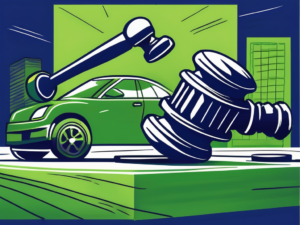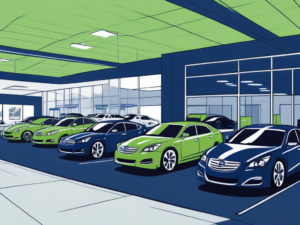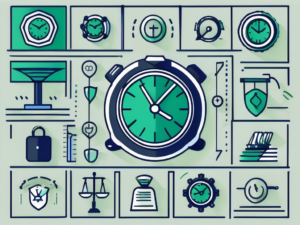Talk to Sales: (401) 200-6026

In today’s competitive automotive industry, implementing an efficient Customer Relationship Management (CRM) system is crucial for dealerships looking to stay ahead of the game. While CRM has long been recognized as a valuable tool for managing customer relationships, its benefits are even more pronounced when applied to multiple dealership locations. In this article, we will explore the indispensable role CRM plays in dealership management, its game-changing impact, and eight key reasons why it is essential for multiple dealerships.
Understanding the Role of A CRM in Dealerships
Before diving into the benefits of CRM for multiple dealership locations, it’s essential to understand its foundational role in dealership management. At its core, CRM is a technology-driven approach that allows dealerships to organize, automate, and synchronize sales, marketing, and customer service activities. By effectively managing customer interactions and streamlining processes, CRM empowers dealerships to better understand their customers and build stronger relationships with them.
The Basics of A CRM in Dealership Management
A robust CRM system provides dealerships with a centralized database to store and access customer information, including contact details, purchase history, and communication preferences. By consolidating this data, dealerships can gain valuable insights into customer behaviors, demographics, and preferences, enabling them to tailor their offerings and marketing strategies accordingly.
Furthermore, CRM allows dealerships to track customer interactions and monitor the effectiveness of their marketing campaigns. By analyzing customer data and engagement metrics, dealerships can identify trends, preferences, and areas for improvement. This data-driven approach enables dealerships to make informed decisions and optimize their strategies to maximize customer satisfaction and retention.
How A CRM Integrates with Multiple Dealership Locations
When a dealership operates across multiple locations, the challenges of managing customer relationships are amplified. This is where CRM truly shines. By integrating CRM across all dealership locations, businesses can ensure consistent and seamless communication with customers, regardless of their location. This integration allows for a comprehensive view of customer interactions and facilitates smooth collaboration between departments and locations.
With CRM, dealerships can implement standardized processes and workflows across all locations, ensuring that every customer interaction is handled efficiently and consistently. This not only enhances the customer experience but also improves internal communication and coordination between teams. By sharing customer data and insights across locations, dealerships can leverage collective knowledge and expertise to provide personalized and targeted services to their customers.
Moreover, CRM enables dealerships to implement targeted marketing campaigns that cater to the specific needs and preferences of customers in different locations. By analyzing customer data and segmentation, dealerships can create tailored marketing messages and promotions that resonate with each target audience. This level of customization enhances customer engagement and increases the likelihood of conversion and repeat business.
In addition to customer management, CRM also plays a crucial role in inventory management for dealerships with multiple locations. By integrating CRM with inventory management systems, dealerships can track and manage inventory levels across all locations in real-time. This ensures that customers can access the desired vehicles and parts promptly, regardless of the dealership location they visit. The seamless integration of CRM and inventory management streamlines operations, reduces costs, and improves overall efficiency.
In conclusion, CRM is a vital tool for dealership management, especially for those operating across multiple locations. By leveraging CRM’s capabilities, dealerships can gain valuable insights into customer behaviors, streamline processes, and enhance collaboration between locations. This ultimately leads to improved customer satisfaction, increased sales, and a competitive edge in the automotive industry.
Sell cars on the lot faster with AutoRaptor
Know if we’re the right fit within 10 minutes
The Game-Changing Impact of CRM
Implementing a CRM system tailored to the requirements of multiple dealership locations can revolutionize operations and customer relationship management. Let’s explore two of the most significant game-changing impacts of CRM in this context.
Streamlining Operations Across Locations
Coordinating sales, marketing, and customer service activities across multiple dealership locations can be a logistical challenge. However, CRM simplifies this process by providing a single platform for managing all customer interactions and internal communications. With CRM, dealership teams can seamlessly share customer data, assign tasks, and track progress, ensuring efficient coordination and streamlining operations.
For example, imagine a scenario where a customer visits one dealership location and expresses interest in a particular vehicle. With CRM, the sales representative can input the customer’s details and preferences into the system. This information is then instantly available to other dealership locations, allowing sales teams to provide a consistent and personalized experience, regardless of the location the customer visits next.
Furthermore, CRM enables dealerships to automate various operational tasks, such as inventory management and order processing. By integrating CRM with other systems, such as the dealership’s website and third-party vendors, dealerships can streamline processes and eliminate manual errors. This automation not only saves time but also reduces costs and improves overall operational efficiency.
Enhancing Customer Relationship Management
Delivering exceptional customer experiences is vital for dealership success. With CRM, dealerships can take their customer relationship management to a whole new level. By leveraging the power of CRM, dealerships can personalize their interactions, provide timely support, and anticipate customer needs. This personalized approach not only enhances customer satisfaction but also fosters long-term loyalty and retention, leading to increased customer lifetime value.
CRM allows dealerships to gather comprehensive customer data, including purchase history, preferences, and communication preferences. This wealth of information enables dealerships to tailor their marketing campaigns and communication strategies to individual customers. For instance, if a customer has shown interest in electric vehicles, the dealership can send them targeted promotions and updates about the latest electric models, increasing the chances of conversion.
In addition, CRM enables dealerships to provide proactive customer support. By tracking customer interactions and preferences, CRM systems can automatically generate reminders for follow-ups, service appointments, and warranty renewals. This proactive approach ensures that customers feel valued and attended to, ultimately strengthening the dealership’s reputation and customer loyalty.
Moreover, CRM empowers dealerships to anticipate customer needs and preferences. By analyzing customer data and behavior patterns, CRM systems can identify trends and predict future buying decisions. Armed with this knowledge, dealerships can proactively reach out to customers with personalized offers and recommendations, creating a sense of exclusivity and enhancing the overall customer experience.
In conclusion, CRM has a game-changing impact on dealership operations and customer relationship management. By streamlining operations across locations and enhancing customer relationship management, CRM enables dealerships to deliver exceptional experiences, increase efficiency, and foster long-term loyalty. Embracing CRM technology is not just a competitive advantage; it is a necessity in today’s customer-centric automotive industry.
Sell cars on the lot faster with AutoRaptor
Know if we’re the right fit within 10 minutes
Key Reasons Why CRM is Essential for Multiple Dealerships
As the need for efficient dealership management continues to grow, let’s explore eight key reasons why CRM is essential for multiple dealership locations:
1. Centralizing Customer Data
By consolidating customer data from all dealership locations, CRM enables businesses to have a comprehensive view of each customer’s journey. This centralized approach eliminates duplication, ensures data accuracy, and empowers dealerships to deliver personalized experiences at every touchpoint.
2. Improving Communication and Collaboration
With CRM, seamless communication and collaboration between dealership locations become a reality. The system enables teams to easily share customer information, assign tasks, and track progress. This collaborative approach promotes teamwork, reduces miscommunication, and enhances overall efficiency.
3. Boosting Sales Performance
CRM is a powerful ally for sales teams in meeting and exceeding their targets. By providing real-time insights into customer behaviors and preferences, CRM aids in identifying potential leads, tracking opportunities, and nurturing relationships. This proactive approach translates into increased sales conversion rates and higher revenue generation.
4. Enhancing Marketing Strategies
When it comes to marketing, CRM acts as a catalyst for success. By analyzing customer data, CRM allows dealerships to segment their audience effectively, tailor marketing campaigns to specific demographics or preferences, and measure campaign effectiveness. This targeted approach maximizes marketing ROI and optimizes the allocation of resources.
5. Increasing Customer Retention and Loyalty
A satisfied and loyal customer base is the foundation of sustained dealership success. CRM helps dealerships understand customer preferences and behavior patterns, enabling them to offer personalized incentives, special promotions, and exclusive benefits. This personalized approach creates a strong emotional connection with customers and fosters enduring loyalty.
6. Facilitating Better Decision Making
Every dealership decision, from inventory management to pricing strategies, should be data-driven. CRM provides invaluable insights into customer trends, sales performance, and market dynamics, empowering dealership management to make informed decisions. This data-driven decision-making approach minimizes risks and maximizes profitability.
7. Reducing Operational Costs
Operational efficiency is paramount for any successful dealership. CRM automates and streamlines manual processes, reducing redundancy, eliminating data silos, and minimizing administrative tasks. By reducing operational costs, dealerships can allocate resources more strategically and invest in areas that drive growth and customer satisfaction.
8. Ensuring Compliance and Security
Dealerships handle vast amounts of sensitive customer data, making data security and compliance essential. A robust CRM system ensures data integrity, implements role-based access controls, and enables audit trails for regulatory compliance. This focus on data security and compliance safeguards customer trust and mitigates potential risks.
Conclusion
In an industry that thrives on customer relationships, CRM systems have proven to be indispensable. For dealerships operating across multiple locations, the benefits of CRM are even more pronounced. From streamlining operations to enhancing customer relationship management, CRM empowers businesses with the tools they need to excel in today’s competitive landscape. By centralizing customer data, improving communication and collaboration, boosting sales performance, enhancing marketing strategies, increasing customer retention and loyalty, facilitating better decision making, reducing operational costs, and ensuring compliance and security, CRM truly emerges as a game changer for multiple dealership locations. Embracing CRM is not just a choice—it’s a necessity for dealerships aiming to thrive and succeed in today’s hyper-competitive automotive industry.
Want to improve your sales and move cars off the lot faster? Book a test drive with AutoRaptor to see how our simple dealership CRM software can help you close more deals effectively.
Subscribe to our Newsletter
Resources to help your dealership convert more leads into sales, retain more customers, and market inventory smarter, straight to your inbox every Sunday.




